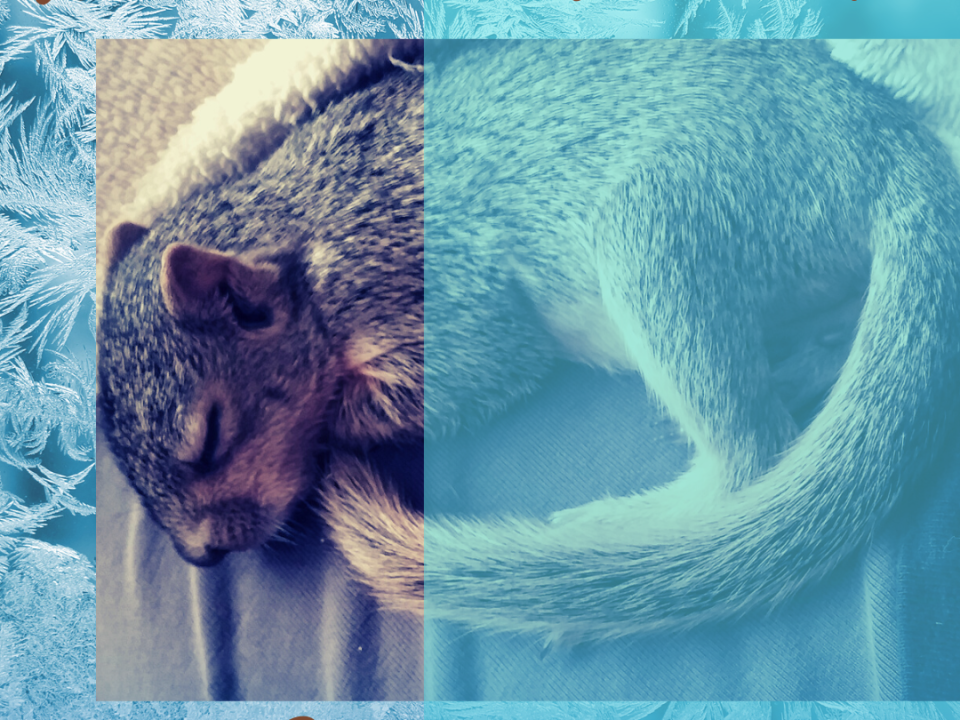Politics of Memories and Archives – the spaces in between – Die Referent*innen
31.10.2022Stellungnahme zum Neuköllner Projekt „Anlauf- und Dokumentationsstelle konfrontative Religionsbekundung“
03.02.2022Bahar Sanli is a cultural and communication scientist (M.A., Humboldt University of Berlin and Freie Universität Berlin) and has been working as a community worker in the neighborhood house Urbanstraße since 2009.
The development and support of alliances and initiatives in the neighborhood, campaign work and the creation of self-determined discourse spaces in the neighborhood are among her fields of activity. She is currently coordinating the campaign „KiezcouRAGE“ with other community workers in Kreuzberg.
She has been teaching at the Protestant University of Applied Sciences for Social Work since 2009. Currently, she is focusing on the topic of „contested spaces in a migration society“ on resistant knowledge production and memory culture.

Iman Attia is a professor of Critical Diversity Studies with a focus on racism and migration at the Alice Salomon Hochschule Berlin and has been working on (anti-Muslim) racism from global-historical, post- and decolonial, post/Nazi as well as relational and intersectional perspectives since the early 1990s. She is also involved in the research project „Verwobene Geschichte*n“ (Interwoven Histori*es) as well as the practice research projects embedded in it „Erinnerungsorte. Vergessene und verwobene Geschichten“ (Places of Memories. Forgotten and Interwoven Histories) and “Passkontrolle! Leben ohne Papiere in Geschichte und Gegenwart” (Passport Control! Living without papers in history and the present).

Iris Rajanayagam is a historian (Cologne, Dar es Salaam and Berlin) and works on post- and decolonial theories, intersectionality, politics of memory(s) and social change; her focus is especially on the connection between theory and practice. She is a consultant for diversity, intersectionality and decoloniality at the Federal Agency for Civic Education (Bundeszentrale für politische Bildung/bpb) and former director of the organisation xart splitta , where she co-initiated and -built the online platform The Living Archives. She also taught for many years at the Alice Salomon University of Applied Sciences Berlin (ASH) in the module „Racism and Migration“ and in the international Master’s programme „Social Work as a Human Rights Profession“. From 2017 to 2019, she was a research assistant in the practice research project “Passkontrolle! Leben ohne Papiere in Geschichte und Gegenwart” at ASH (Director: Prof. Dr. Iman Attia) and was involved in the design of the page „Verwobene Geschichte*n“. Between 2019 and June 2021, she was the board spokesperson of the Migrationsrat Berlin (Migration Council Berlin). Iris Rajanayagam is also co-founder of the radio programme „Talking Feminisms“ at reboot.fm.

Diane Izabiliza is a filmmaker and completed her Master’s degree in Sociocultural Studies at the European University Viadrina, in Frankfurt/Oder. She is a graduate of the Bachelor’s programme in Social Work at the Alice Salomon University of Applied Sciences in Berlin and a trained educator. Her research interests include: (Anti)racism, gender, cultures of memory and critical migration research. She worked as a student assistant in the practice research projects „Verwobene Geschichte*n“ and “Passkontrolle! Leben ohne Papiere in Geschichte und Gegenwart”. In 2019, she was a lecturer, in the Diversity Studies/ Racism and Migration Department, at the Alice Salomon University of Applied Sciences, Berlin.
Since January 2021, she has been co-director of the Berlin Project Fund for Cultural Education.

Dr. Njoki Ngumi is a writer and feminist thinker who has held positions in private and public health care sectors in Kenya. She is a founding member of the Nest Collective, a Kenyan multidisciplinary gathering of artists, builders and makers, where she has expanded her practice into film, research design, and organisational, collaborative strategy.
Njoki’s cross sectoral work and organising was also core to the Nest Collectives’s founding and set-up of 2 now independent entities: HEVA, Africa’s first cultural and creative economy catalyst facility, in 2013; and Strictly Silk, a festival, club and multimedia entity dedicated to happiness, enjoyment, care and community with and among people marginalised by gender in 2018. Njoki is currently in post-production with the Nest’s latest film work, The Feminine and The Foreign.

Adetoun Küppers-Adebisi ist Präsident*in von AFROTAK TV cyberNomads, dem Schwarzen Deutschen Kultur-, Medien-, und Bildungsarchiv und wurde mehrfach national und international als Medien- und Kulturaktivist*in ausgezeichnet.
Seit 2002 konzipiert sie kulturelle Bildungs- und Wissenstransfer-Plattformen in Kooperation mit Institutionen wie Bundeszentrale für politische Bildung, Goethe Institut, Heinrich Boell Stiftung und Haus der Kulturen der Welt. Der May Ayim Award wurde 2004 als deutsches UNESCO Projekt zur Erinnerung an den Versklavungshandel und seine Abschaffung ausgelobt. Weitere Auszeichnungen kamen u.a. von der UN 2016 und 2020 von CIM für ein Projekt in Nigeria. Seit 2012 kuratiert sie die Black Berlin Biennale for Contemporary Art & Decolonial Discourse, die seit 2016 offizielles Projekt der UN-Dekade for People of African Descent ist. Mit African Union African Diaspora Sixth Region 2009, The African Network Germany 2012 und DaMIGRA 2015 hat sie drei Bundesverbände begründet.
Aktuell engagiert sie sich ehrenamtlich als Sprecher*in des Rates für Diversity und soziale Inklusion von Berlin Global Village, dem Berliner Eine Welt Zentrum in Neukölln und im Vorstand des Berliner Entwicklungspolitischen Ratschlag.

Red Haircrow is an award-winning writer, educator, psychologist and filmmaker of Native (Chiricahua Apache/Cherokee) and African American heritage, who holds a Master’s in Native American/Indigenous Studies and a BSc in Psychology. Their interests and research focuses include Indigenous game development, GLBTIIQ2S needs and suicide prevention, and inter-generational historic trauma of marginalized and minoritized groups and peoples. Red Haircrow and Flying with Red Haircrow.

HAN Nataly Jung-Hwa is chairwoman of the board of Korea-Verband e.V. and founder of the working group “ Trostfrauen“ (Comfort Women) and the museum of comfort women (MuT) in Korea-Verband.
At the age of 16, she first came from South Korea to Stuttgart, where her mother worked as a nurse. She studied Korean studies, Japanese studies and art history in Tübingen, at the Free University and at the Humboldt University in Berlin. Her main topics are gender, postcolonial theories and migration. Since 2008, she has led the „Trostfrauen“ working group, in which people of different backgrounds and generations work for justice for women and invite former „Trostfrauen“, who were forced into prostitution by the Japanese military during World War II, to Germany every year. In September 2020, she took the lead in placing the Peace Statue with official permission in Berlin Moabit, which was almost removed due to massive pressure from the Japanese government, and is fighting to preserve the statue. In October 2022, the Museum of Comfort Women (MuT) opened in the premises of the Korea Association.

Kenan Emini is chairman of the Roma Center e.V., founder and director of the Roma Antidiscrimination Network since 2015 and nationwide co-founder and vice-chairman of the Federal Roma Association, the umbrella organization of migrant Roma in Germany. He made research trips on the situation of deported Roma, among others in Serbia, Kosovo, Macedonia, currently also on the situation of fled Roma from Ukraine in Poland, Czech Republic, Germany. Kenan Emini is the director of the documentary film „The Awakening“ about the situation of deported young Roma in various countries, young Roma threatened with deportation in Germany and the shift to the right in Europe.

Sea Novaa is a Bahamian-American conceptual artist and designer. After practicing law in New York City for five years, Novaa pursued music composition and art-making in Berlin.
Novaa’s practice centers around the theme of freedom. Traversing several disciplines, Novaa’s work encompasses sound, performance art, movement, and shapes.

Sinthujan Varatharajah is a freelance scholar and essayist living in Berlin, where she*he curates the event series dissolving territories: cultural geographies of a new eelam. She*he studied political geography and was part of the 11th Berlin Biennale for Contemporary Art with the research and art installation how to move an arche. In 2017- 2018 she*he was a board member of the European Commission’s Advisory Council on Asylum and worked for several human rights organizations in London and Berlin over several years. Essays by Sinthujan Varatharajah have appeared in The Funambulist, Jacobin as well as Fluter, among others.

Ginnie Bekoe writes Essays and Poetry, gives Workshops and Talks and thinks enthusiastically about the intertwinings of Blackness, Dis_ability, Fatness & Queerness.
Ginnie loves Icecream, Watermelon-Drink and elephantcalfs in no distinct order.
These days Ginnie deals artistically with Dis_Ability, Ancestry and Legacy as well as radicality as empowerment.

Huda, from Berlin, dropped out of school and then into theater. After something to do with media and a degree in acting, she decided to become a cheeky illustrator and political image-maker. In her free time Huda listens to 1nen song on continuous loop. Huda’s illustrations are in the realm of the halal.



